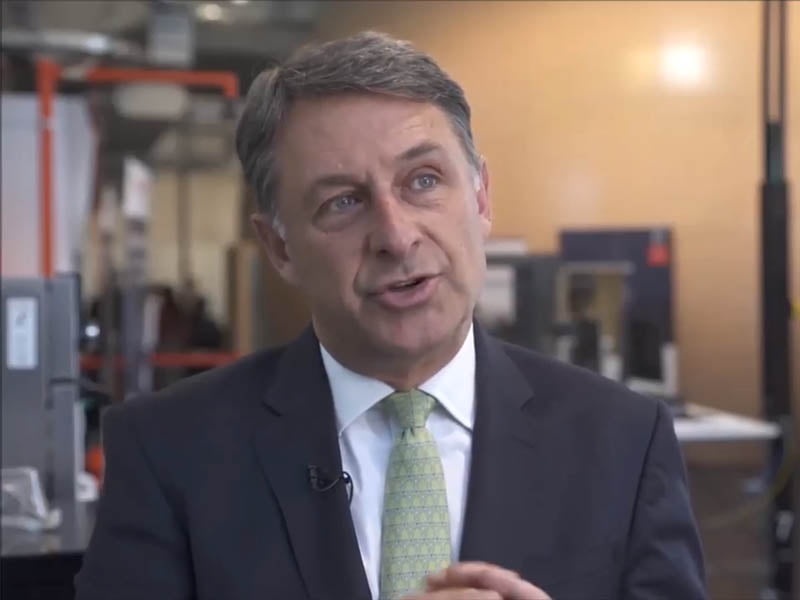The fifteen members of a key advisory body that will help shape data standards that will underpin the Consumer Data Right and the looming open banking regime have been named.
The Advisory Committee will provide guidance and advice to the Andrew Stevens-led Data Standards Body as it develops the data standards that will enable the portability of consumer data between competitors.
Effectively the regime gives consumers greater control over their data, and in the case of open banking, will allow bank customers to take data related to their deposit accounts, credit accounts and transaction accounts with them if they choose to move to another bank.

Treasurer Scott Morrison has decreed the open banking regime will come into effect from July 1 next year, to be followed by data in the energy and telecommunications sector after that, with the date to be determined.
Mr Stevens is a former managing director of IBM Australia New Zealand and is a current board member of accounting software giant MYOB among other boards. He is also chairman of the Advanced Manufacturing Growth Centre.
He was appointed interim chair of the Data Standards Body in May, while the CSIRO’s Data61 unit was funded in the May federal budget to provide advisory and support services for three years.
Data61 was given $11.4 million over the forward estimates to underpin the advisory, including $3.5 million this financial year.
While the Data Standards Body will drive the technical standards for data across a series of industries as the Consumer Data Right is rolled out across the economy, its focus right now is on banking, given the tight timeframe between now and the start of the open banking regime.
The members are heavy on mainstream finance experience.
Six of the fifteen members of the Advisory Committee, listed below, are from banks – including the Big Four, Macquarie, and Endeavour Mutual.
It includes three FinTech companies in Verifier, MoneyTree and MoneyPlace, as well as a single representative each from the telecommunications and energy sectors.
The committee members are:
- Andrew Stevens, Interim Chair of the Data Standards Body
- Andy White, COO, Australian Payments Network
- Emma Gray, Chief Data Officer, ANZ
- Gary Thursby, Group Executive, Strategy & Enterprise Business Services, Westpac
- John Stanton, CEO, Communications Alliance
- Kate Crous, General Manager Strategy and Operations, Digital, Commonwealth Bank of Australia
- Lauren Solomon, CEO, Consumer Policy Research Centre
- Lisa Schutz, Managing Director, Verifier
- Luis Uguina Carrion, Chief Digital Officer, Macquarie Bank
- Mal Webster, Chief Risk Officer, Endeavour Mutual Bank
- Mark Perry, APAC Chief Technology Officer, Ping Identity
- Martin Granell, Chief Technology Officer, AGL
- Patrick Wright, Chief Technology and Operations Officer, NAB
- Ross Sharrott, Chief Technical Officer, MoneyTree
- Stuart Stoyan, Founder and CEO, MoneyPlace
- Viveka Weiley, Head of New Things, CHOICE
There are just four women on the Advisory Committee, after about one-fifth of the 44 nominations for membership came from women.
The focus on the banks was to ensure that each of the Big Four brought a different set of skills and experience to the table.
“I thought it made sense that we had the four banks involved that are going to have the primary ‘make-available’ responsibility, because I would rather have them inside the process and understanding some of the implications of how we’re going to have to work,” Mr Stevens told InnovationAus.com.
“We’ve got a good mix of capability. Of the four people who are involved from the majors (Big Four), one is a CTO, one is involved in digital, one is chief data officer and one is in charge of strategy for the bank,” he said.
“So those four people represent data, technology, strategy and digital.”
The energy and telecommunications representatives – Martin Granell from AGL and John Stanton from the Communications Alliance – are there are to ensure no surprises from the next two sectors to move to an open regime.
“We wanted to make sure when we were considering the API’s and the data standards themselves that we didn’t overlook any of the implications for those two sectors, which are next,” Mr Stevens said.
The current board appointments have been made for 12 months, although Mr Stevens has the option of adding additional members if it becomes clear there are holes in its expertise.
In the meantime, the development of the data standards is happening concurrently with the development of the architecture for the regime and the writing of the legislation.
Mr Stevens’ appointment as ‘interim’ chair of the Data Standards Body is because the body itself is still subject to the passing of legislation.
“The reality is that this is an agile approach to say ‘let’s get on with it, let’s appoint the chair in an interim capacity and let’s get the ACCC to develop the rules while the legislation under which those rules will be enacted are developed,” Mr Stevens said.
“It is quite an unusual experience to be involved in the drafting of the legislation to create something while we are also doing the work on the implementation for July 1, 2019.”
Do you know more? Contact James Riley via Email.

